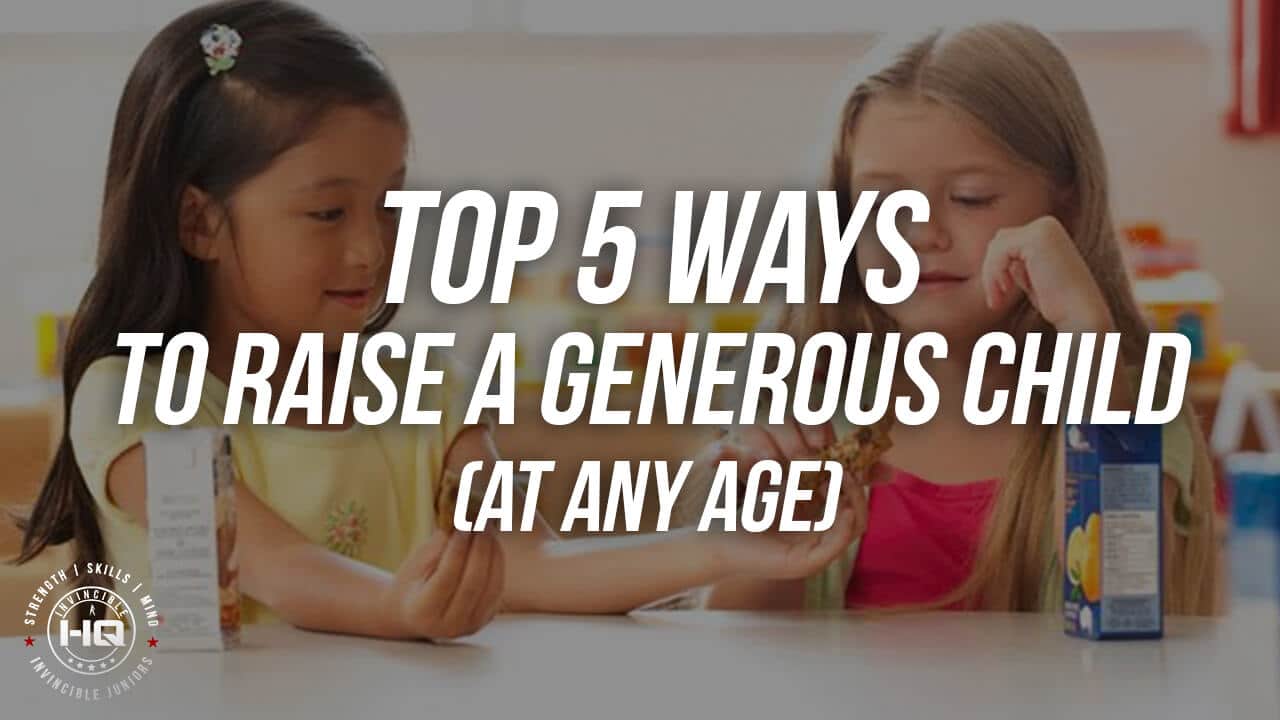Upon my research into how to raise kind, generous children, three common themes emerge.
1. Do it yourself – Children will watch and copy what you do.
2. Talk about it – Point out when others are generous.
3. Encourage it – Look for opportunities to help your children practice being generous and doing things for others.
Check out these age-appropriate strategies below.
RAISING A GENEROUS PRESCHOOLER (AGES 3 TO 5)
Preschool children are little sponges, and they’re keen observers. Developmentally, preschoolers are ready to understand the concept of sharing and are learning how to do things for themselves: getting dressed, tying their shoes, riding a bike.
Learning autonomy and initiative is key at this developmental stage. Look for ways to help your children practice becoming a cheerful giver on their own.
Model generosity by being kind and generous to those in need. Idea: Keep granola bars in your car or bag to give out to the homeless, or take a meal to a sick neighbour.
Don’t force generosity or giving, which could backfire. Instead, give positive reinforcement when you see your child sharing, giving, or being generous.
Tip: School psychologist Whitney Hutcheson recommends using “I statements” to help children build awareness about how their behaviour impacts others. For example, “When I saw you sharing your favourite toy with your friend, that made me feel happy.” It also works when addressing negative behaviour. “When you hit your sister, that hurt my heart.”
RAISING A GENEROUS SCHOOL-AGE CHILD (AGES 5 TO 11)
Developmentally, school age children need to develop life skills and learn competence at tasks and social interactions.
Whitney recommends helping children learn how to be functional members of a community by taking on age-appropriate chores, like setting the table, putting away their laundry, clearing plates, etc.
Make it their own. Have your children go through their toys and set aside the ones they don’t want to keep. Then either: Sell the toys at a garage sale and give away all or some of the proceeds to a charity, or, have your kids go with you to donate the toys to a charity.
RAISING A GENEROUS TEEN (AGES 12 TO 19)
At this stage, adolescents are developing a sense of identity and often look to parents, friends, teachers, and coaches to help them answer the question, “Who am I?” Encouraging initiative to care for others can help teens develop generosity as part of their identity.
Model good household finances by explaining how you prioritize charitable giving in your monthly/yearly budget.
Continue (or start) encouraging your teen to use the save/spend/give model for managing their money.
If you support charities or missionaries, explain this to your teens, and involve them. Read their newsletters together. Go to fundraiser events together.
Be generous together. Take your teens and some of their friends to serve at a local homeless shelter, do a service project, or even go on a mission trip. Let your teens see you being kind and generous to those in need.
Make it their own. Ask your teen if there is a cause or issue that stirs their heart. Help them come up with ways to do something about it by serving, volunteering, or fundraising.




